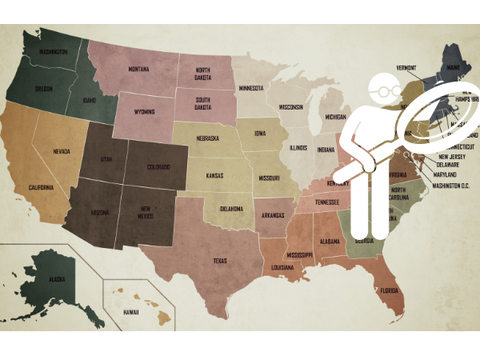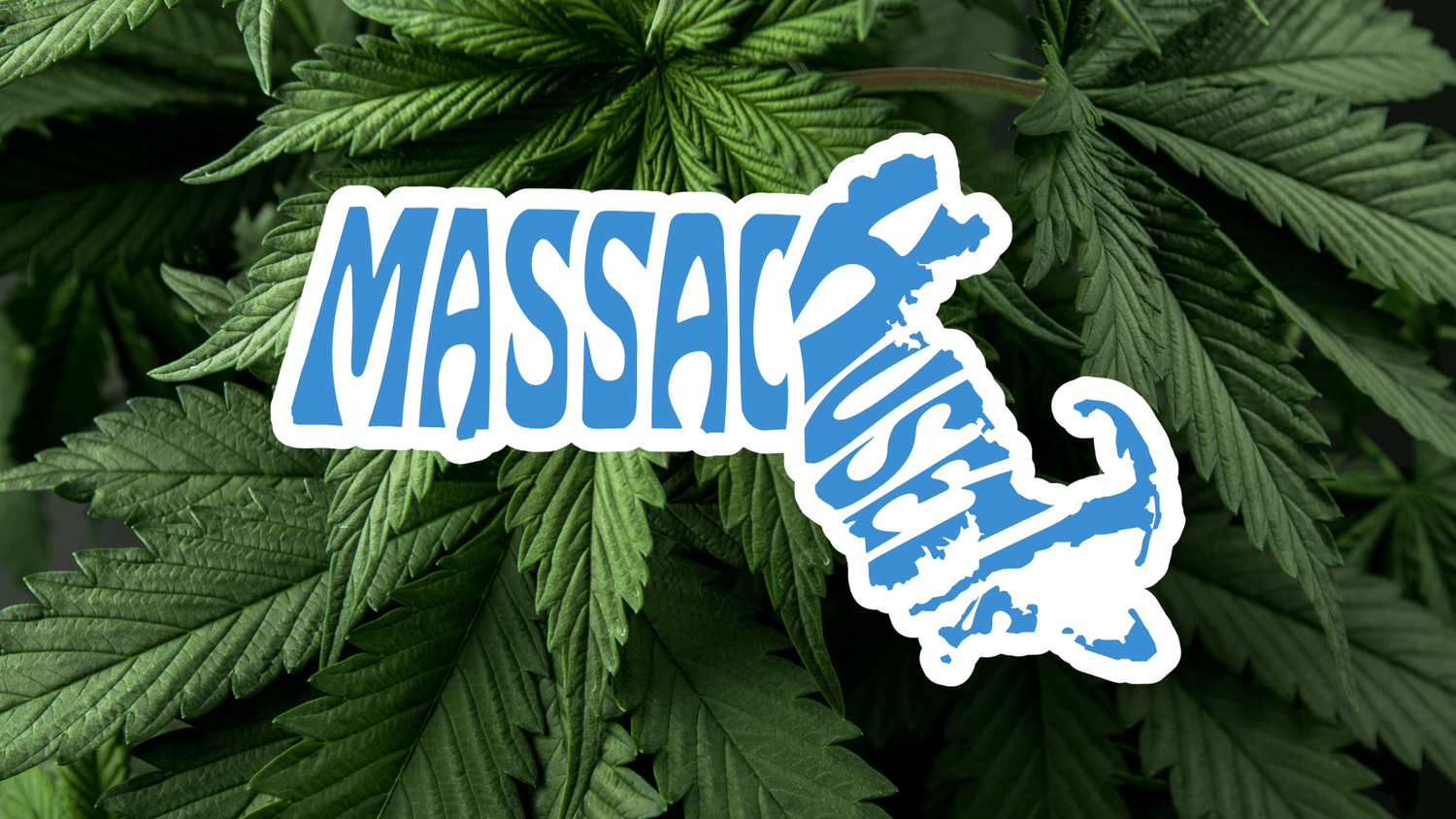Delta 8 is a popular cannabinoid that has gained significant attention in recent years.
However, its legal status remains a topic of discussion and confusion in various states across the United States.
In this article, we will dive into the specifics of Delta 8 legality in Massachusetts and explore the current legal landscape surrounding this compound.

Table of Contents
Understanding Delta 8
Before diving into the nuances of Delta 8 legality, it is crucial to understand what exactly Delta 8 is.
Delta 8, also known as Delta-8-tetrahydrocannabinol, is a naturally occurring cannabinoid found in cannabis plants.
Delta 8 is structurally similar to Delta 9, but with some subtle differences in its molecular structure. These differences result in Delta 8 having its own set of effects and characteristics. One of the key distinctions is that Delta 8 is known to offer a milder psychoactive experience compared to Delta 9.
Many users describe the effects of Delta 8 as more relaxing and less intense than Delta 9. This makes it an appealing option for those who want to experience the benefits of cannabis without feeling overwhelmed by its psychoactive properties.
It is worth mentioning that Delta 8 is typically found in low concentrations in cannabis plants. However, advancements in extraction and isolation techniques have made it possible to produce Delta 8 in higher concentrations, making it more accessible to consumers.
The Legal Status of Delta 8 in the United States
When it comes to the legal status of Delta 8, it is essential to note that federal regulations play a significant role.
The 2018 Farm Bill legalized hemp and hemp-derived products with a Delta 9 THC content of 0.3% or less. However, the legislation does not explicitly mention Delta 8. This has led to varying interpretations and regulations at the state level.
While some states have explicitly banned Delta 8, others have chosen to regulate it or have not addressed its legality at all. As a result, Delta 8's legality can vary from state to state, making it crucial to understand the specific regulations in each jurisdiction.
In states where Delta 8 is explicitly banned, the sale, possession, and use of this cannabinoid are strictly prohibited. These states often argue that Delta 8 is a synthetic form of THC and therefore falls under the Controlled Substances Act. They believe that any psychoactive substance derived from hemp should be treated the same as Delta 9 THC, which is classified as a Schedule I controlled substance.
On the other hand, states that have chosen to regulate Delta 8 have implemented specific guidelines and restrictions. These regulations often include requirements for lab testing, labeling, and licensing for businesses involved in the production and sale of Delta 8 products. By establishing these regulations, states aim to ensure consumer safety and product quality.
States that have not addressed the legality of Delta 8 may fall into a legal gray area. In these jurisdictions, the sale and possession of Delta 8 products may not be explicitly prohibited, but they may also not be explicitly allowed.
This lack of clarity can create confusion for consumers and businesses alike, as they navigate the legal landscape surrounding Delta 8.
It is important to note that even in states where Delta 8 is legal, certain restrictions may still apply. For example, some states may require individuals to be of a certain age to purchase Delta 8 products, similar to the regulations in place for tobacco and alcohol. Additionally, driving under the influence of Delta 8 or any other psychoactive substance is strictly prohibited in all states.
In conclusion, the legal status of Delta 8 in the United States is complex and varies from state to state. While some states have explicitly banned it, others have chosen to regulate it or have not addressed its legality at all. As the industry continues to evolve, it is crucial for consumers and businesses to stay informed about the specific regulations in their jurisdiction to ensure compliance and safety.
The Specifics of Delta 8 Legality in Massachusetts
So is Delta 8 legal in Massachusetts? The answer is yes.
In Massachusetts, the sale of Delta 8 is legal but only from licensed cannabis retailers.
Under Massachusetts law, marijuana is legal for both medical and recreational use. However, this legality specifically applies to Delta 9 THC and other cannabinoids present in marijuana.
Since Delta 8 is typically derived from hemp, which is legal under federal law, some argue that it falls outside the jurisdiction of Massachusetts' marijuana regulations.
Relevant Laws in Massachusetts
Massachusetts has state-specific laws and regulations that govern the sale, possession, and consumption of marijuana. The most notable of these include:
- The Massachusetts Controlled Substances Act
- The Massachusetts Cannabis Control Act
- The Massachusetts Medical Use of Marijuana Program
However, none of these laws explicitly mention Delta 8 or provide clarity on its legal status. As a result, there is ongoing debate and ambiguity surrounding the legality of Delta 8 in Massachusetts.
Despite the lack of specific regulations, the CCC has been closely monitoring the emergence of Delta 8 in the state.
Meanwhile, consumers in Massachusetts have shown a growing interest in Delta 8 products.
On the retail side, some local businesses have started selling Delta 8 products, capitalizing on the demand and the legal ambiguity. However, others remain hesitant, unsure of the potential legal consequences. The lack of clear guidelines has created a cautious atmosphere within the industry, with retailers and distributors treading carefully to avoid any legal pitfalls.
Advocacy groups and industry stakeholders have been pushing for the CCC to issue specific regulations on Delta 8. They argue that clear guidelines would not only protect consumers but also provide a framework for businesses to operate within the law.
However, the process of developing and implementing new regulations can be lengthy and complex, involving public hearings, stakeholder input, and careful consideration of the potential impact on public health and safety.
Until the CCC addresses the legality of Delta 8 in Massachusetts, the gray area surrounding its status will continue to persist. Consumers, businesses, and regulators alike are eagerly awaiting a resolution that will provide clarity and guidance in this evolving landscape.
The Future of Delta 8 in Massachusetts
The slight ambiguity surrounding Delta 8's legal status has raised concerns among lawmakers and regulatory bodies. The Massachusetts Cannabis Control Commission (CCC), the governing body responsible for overseeing the state's cannabis industry, has yet to provide clear guidelines or regulations specifically addressing Delta 8. This means, that it it technically legal due to Federal law.
While Delta 8 products are currently available in Massachusetts, the lack of regulatory oversight poses potential risks for both consumers and businesses. Without standardized testing and quality control measures, there is a possibility of inconsistent potency and purity across different Delta 8 products.
That is why it is crucial to buy from reputable sources that provide COAs, or lab reports.
Navigating the Legal Landscape of Delta 8 in Massachusetts
In conclusion, Delta 8 is legal in Massachusetts.
While the state has not explicitly addressed or regulated Delta 8, this does not automatically imply its legality. Massachusetts residents and businesses involved with Delta 8 should stay informed about potential developments in legislation or regulations that may impact the legality of this compound.
It is crucial to consult legal professionals who specialize in cannabis law and to thoroughly understand federal and state regulations to ensure compliance. Additionally, consumers should conduct their own research and exercise caution when purchasing Delta 8 products, ensuring that they come from reputable sources and undergo third-party testing to guarantee quality and safety.
Discover High-Quality Delta 8 Products at GreenPost
Now that you're informed about the legal landscape of Delta 8 in Massachusetts, you may be interested in exploring quality Delta 8 products. Look no further than GreenPost. We pride ourselves on offering top-notch Delta 8 gummies, oils, flower and more, all sourced from high-quality hemp. Our products undergo stringent testing to ensure purity and potency.



Leave a comment
This site is protected by hCaptcha and the hCaptcha Privacy Policy and Terms of Service apply.